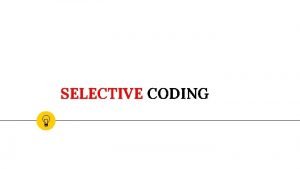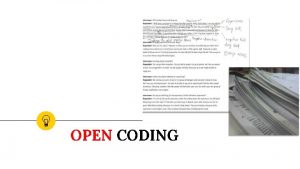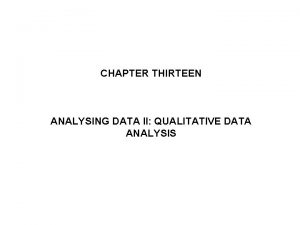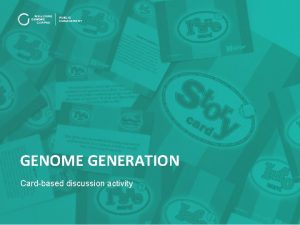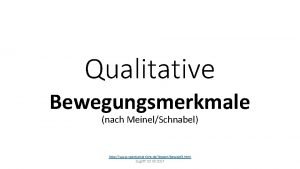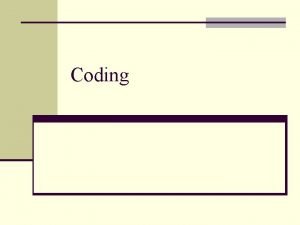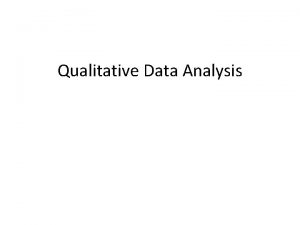Coding Coding n What is coding In qualitative









- Slides: 9

Coding

Coding n What is coding? In qualitative analysis, coding is the process perusing data for categories and meanings (themes, ideas, etc. ) and then systematically marking similar strings of text with a code label. This allows for systematic retrieval at a later stage for further comparison and analysis. Coding the data makes it easier to identify any patterns that require further investigation.

Coding n Codes may be based on: n Actions, behaviors n Themes, topics n Ideas, concepts n Terms, phrases n Keywords n Code only relevant data (Not all data must be coded)

Coding n Codes are given meaningful names that are applied to all instances of similar content. Strings of text may contain more than one code. n When new content is discovered, a new code is created to apply to it and other similar content. n

Coding n Through analysis, n Codes may evolve n The number of codes may grow as more topics or themes become apparent. n Therefore, generate and maintain a list of codes to help to identify the content contained in the codes and the data set.

Coding n Sources of codes (usually both below): n A priori codes n n n Previous research Previous theory Research question Your intuition of the data or setting Grounded codes (suspend your ideas about the phenomenon and let your data determine your thinking)

Coding n When coding, continually ask yourself questions about the data. For example: What is going on (context)? n What are people doing? n Toward what are persons orienting their thoughts? n What is the person saying? n What do these things take for granted? n How does context affect the statements? n

Coding Some things that might be coded: Examples: Behaviours, specific acts Being dumbfounded, Bragging Events – short once in a lifetime events or things people have done, often told as a story Meeting a transexual, first time seeing a video clip Activities – these are of a longer duration, and involve other people within a particular setting Being a lover, playing ball Strategies, practice or tactics Cutting hair to look masculine States – general conditions experienced by poeple Being “put out” with feminine guys Relationships or interaction I want to kick their asses Conditions or constraints girl’s If he only knew how to sing, wearing a shirt Consequences question sex Acting like that makes people

Coding n When coding, constantly compare with previous strings of text that bear that code. n As one codes, and subsequent to coding, one should create a data display to manage the data n The researcher then generates themes by linking instances of codes with other codes. n The themes are formed into a narrative about the data. n There are numerous legitimate ways to move from codes to narrative, but the common ingredients are systematic work and adherence to logic.
